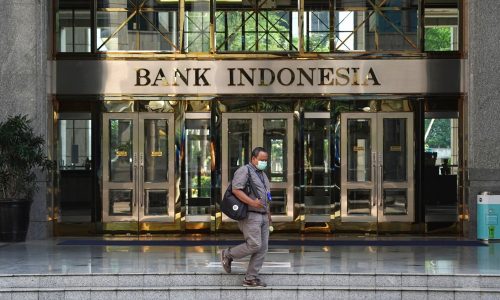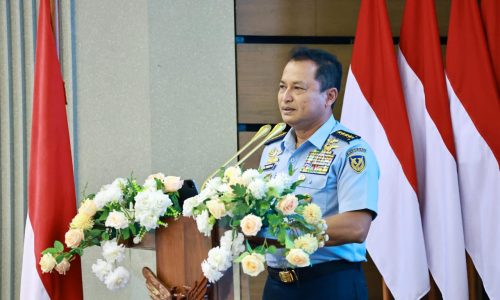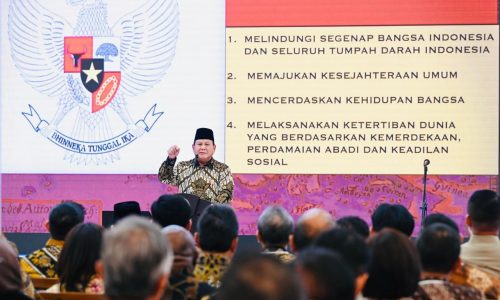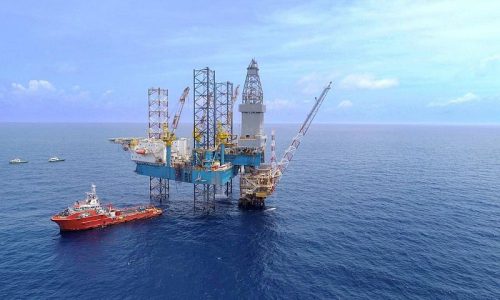The mega project of building Indonesia’s new capital city in East Kalimantan is underway as the government has shown its strong commitment. However, many have doubted that the US$32 billion project would be materialized.
Didik Kusnaeni, a senior official at the finance ministry who is working on Nusantara capital city transition team, said the Joko “Jokowi” Widodo’s administration has finalized all new capital regulations, completed the establishment of the capital authority, and begun the fieldwork.
“The new capital bill was passed into law in January 2022, and in March, April, and May, the government finalized all derivative regulations. We are now completing the physical works,” he explained.
In March 2022, the government has appointed technocrat Bambang Susanto and businessman Dhony Rahajoe as the respective head and deputy head of the Nusantara Capital City (IKN) Authority for a five-year term.
The 265.14-hectare Nusantara, which means the “archipelago”, will house state institutions and around 1.5 million civil servants, who are scheduled to conduct their services beginning 2024.
The authority has conducted a thorough review for all personnel and human resource needs. Kusnaeni said the public works and housing ministry has begun the construction of Sepaku Semoi Dam to supply raw water and drinking water as well as built roads and bridges.
Financing
Kusnaeni said the government has estimated that the relocation and development of the new capital city would cost between IDR490 trillion and IDR520 trillion while the whole process would take place until 2045.
The financing for the capital project would come from various sources, including state budget (APBN) and non-state budget (Non-APBN). Non-state budget financing will be provided through public-private partnerships and foreign investment.
State funds will be used to construct basic infrastructure and government buildings.
Funds from investors, public-private partnerships, and asset management, will be used to build the business and commercial infrastructures. The government develops not only office buildings but also business centers, recreation centers, and housing for government employees in Nusantara capital city.
Indonesian Investment Coordinating Board (BKPM) senior official, Indra Darmawan, said the government was evaluating the total investment potential for the new capital project. Nusantara offers infrastructure, information technology, renewable energy, and utility opportunities. Aside from mapping and presenting investment opportunities, the BKPM also uses its overseas networks of Investment Promotion Centers in eight countries to secure investors.
Oppositions
Lawmaker Suryadi Jaya Purnama of the opposition Prosperous Justice Party (PKS), praised Jokowi’s commitment to build a new capital. However, he said the strong commitment was not followed by calculated measures.
Purnama said PKS has strongly rejected the plan for IKN due to budget concern. He argued that Indonesia has been facing economic challenges from the increasing food prices, the ballooning government’s debt to declining foreign investments.
“In the middle of the [COVID-19] pandemic like this, we need funds for economic recovery. Developing a new capital city is a new burden,” he said, adding that the government has set a wrong priority by building a new capital.
Center for Economic and Law Studies (CELIOS) chief economist Bhima Yusdhistira Adhinegara said the government should have stabilized the prices of fuel and food instead of building the new capital. The government should use the state budget to control inflation, recover the people’s purchasing power, develop industrial estates, and increase the efficiency of logistic infrastructure.
According to Adhinegara, the burden on state budgets will increase due to the cost overrun of the new capital project caused by inflationary increases in building materials and fluctuations in exchange rates.
Consequently, the government will seek more debt to finance the project and another spending.
“In light of the current macroeconomic climate, we believe that the government should refrain from debt financing because we are concerned about the possibility of an increase in interest rates,” he added.
Investors
Currently, no foreign investors have shown their interests in investing in the new capital project, according to an economist at Political Economy and Policy Studies Anthony Budiawan. Government officials have claimed that investors from Saudi Arabia and the United Arab Emirates would invest in the project, but no investment has come to reality thus far.
Japan’s Softbank Group had exited from investing in the IKN in early March 2022.
Budiawan argued that building a new capital from scratch would not be visible in East Kalimantan due to lack of manpower and resources. He said it was completely different from building a town in satellite cities of capital Jakarta, such as the BSD city in Serpong, Banten – which is around 30 kilometers away. There are no significant challenges of building a new city in Indonesia’s most populated Java island as infrastructure, including building materials, had been in place while manpower are easily available.









